Turning 18 is a time of extra transition for kids living with chronic illness.
They do not magically become adults overnight, but this milestone birthday marks the beginning of new rights, responsibilities and other things to consider.
Transitioning To Adult Care
The thought of “graduating” to adult care may be particularly daunting if your child has complex health needs. Your pediatrician is practically family, right? But at 18 a child can start being seen by an adult primary care physician (PCP). Keep in mind, it can be a gradual shift as it is important to find the right fit. Studies show that kids who are more involved in the process have an easier time with the adjustment. Ask your doctor to make recommendations. Encourage your child to make a list of any health issues, concerns or treatment plans that they want to discuss with their new physician. Encourage your child to discuss this list with their pediatrician and collaborate. You may also want to consider a “trial run” with new healthcare providers. Meet with them, and then follow-up with your pediatrician and empower your child to actively assess if they think the recommended physician would be a good fit for their new adult healthcare team.
Roles and Responsibility
If your child has not been involved in managing their own medication or taking an active part in their care, now is the time to start. It is important that your child is aware and can communicate their health history and any relevant issues on their own – especially if they will be going away to college.
Medical Decision Making
At 18 your child now has complete control over their own healthcare and the authority to make all medical decisions. As a parent, you are not even allowed to request an x-ray report unless they decide to share information with you. You are essentially legally excluded from the decision making process unless invited in and physicians cannot discuss any aspect of your child’s medical care without their permission.
For this reason, you may want to ask your child to sign a HIPPA release form to be used and sent to all members of your care team. It is also advisable to request both medical AND financial disclosure to allow you to continue to communicate on billing issues. Always keep an extra-signed copy on hand for use in an emergency or ER situation.
Transitioning To College
Whether your child is commuting or is going to live away, mapping out their physical and educational needs beforehand and proactively communicating with them in writing to professors and school administrators is a great way to help set your child up for success.
IEPs and 504 Plans do not transfer to college, but your child is still protected under Section 504 of the Rehabilitation Act which requires colleges to provide support and accommodations for disabled students.
Most colleges and universities will have a disability services office with detailed information provided on their website. Your child will need to provide documentation of disability and register as a disabled student in order to request special accommodations. The disabilities office can also guide you on matters of student housing, medical resources and if necessary, emergency response plans.
Keep in mind that The Family Educational Rights and Privacy Act (FERPA) is a federal privacy law that gives parents certain protections with regard to their children’s education records, transcripts, disciplinary records, etc. However, that too evaporates when a child turns 18 or enters college and all FERPA rights now transfer to the student. So you may also want to check and see if written permission is needed from your child to allow you and school officials to communicate.
Health Care Coverage
If your child is a dependent on your healthcare plan, the Affordable Care Act allows your child to be covered until age 26, whether he or she is living at home, in college or even married! Just remember to send your child to school with a copy of their insurance card.
Social Security
People who are disabled prior to turning 22 may also be eligible for Social Security Disability Insurance (SSDI). After 24 months, disabled children may also receive coverage through the Medicaid based on income, or if they qualify for and/or receive Supplemental Security Income (SSI).

